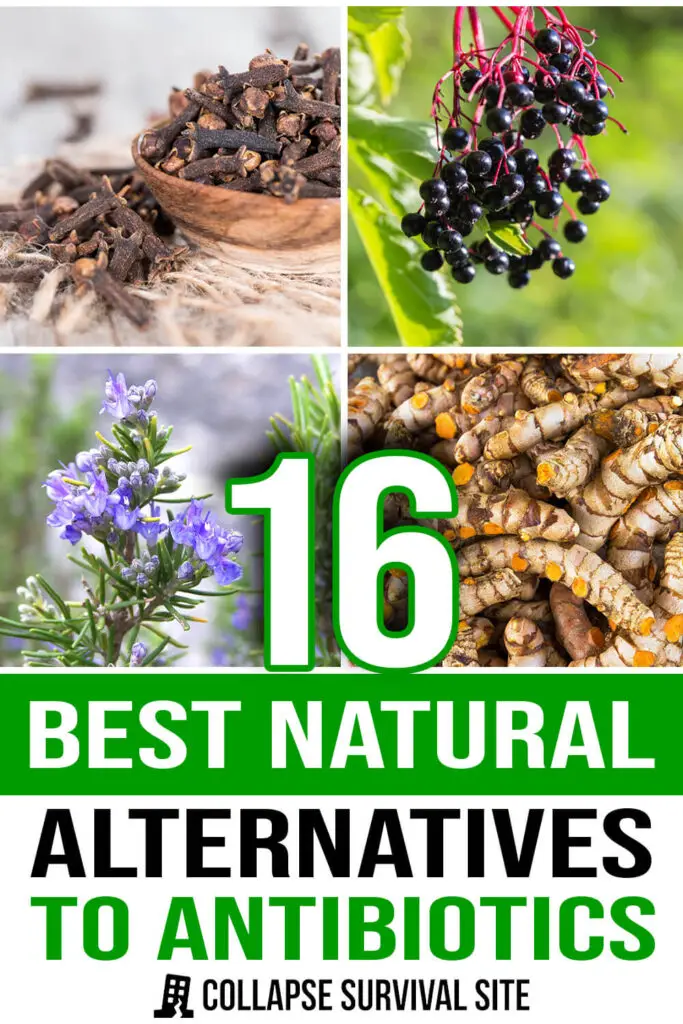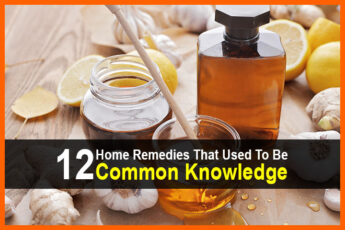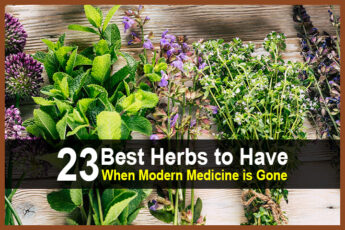Estimated reading time: 9 minutes
Have you thought about what would happen if you couldn’t get you or yourself the antibiotics needed to take care of an infection? Antibiotics can me the difference between life and death. Even the smallest cut can turn into something major without an antibiotic to battle the infection.
If prescription antibiotics are not an option, there are some plants that have natural antibiotic effects. These can be used when you’re in a situation that requires some infection fighting but can’t get to a doctor or pharmacy.
Want to save this post for later? Click Here to Pin It On Pinterest!
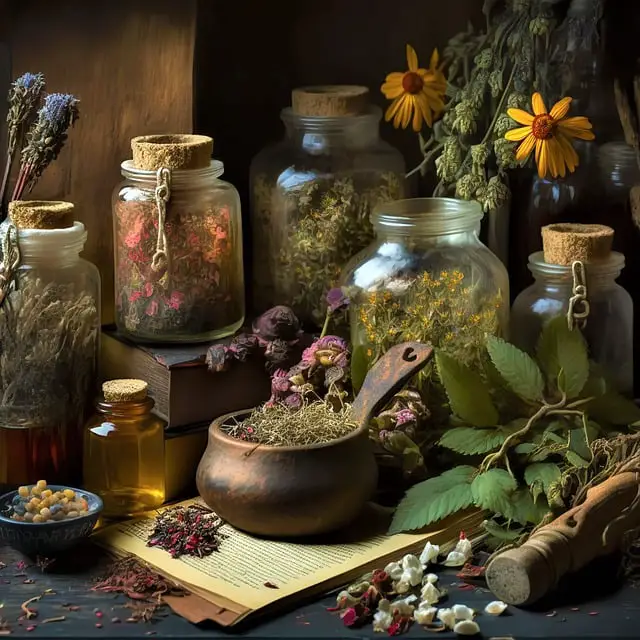
Remember, our ancestors survived wounds for thousands of years without modern medicine. Check out the plants you’ll want to know in case of emergency. If you are going to be foraging for these in the wild, it’s crucial you know exactly what you are picking.
However, it is possible to buy these now over the counter in capsule, tea or liquid form. You could add them to your stockpile now for a time in the future that might leave you cut off from the world.
1. Anise
Anise isn’t one of the top antimicrobials but it does have some antibiotic qualities. Typically, it is used in tea form. A few crushed seeds steeped in a cup of hot water is consumed to help battle respiratory and digestive infections.
Adding a teaspoon of honey to sweeten the tea is another way to boost the antimicrobial qualities. Chewing on some anise seeds is a way to battle dental infections. Some people will use the tea as a mouthwash for dental issues.
Anise essential oil can be applied to wounds if it is used in a carrier oil. Never apply straight anise oil to the skin. If you have an allergy or sensitivity to celery, carrots or fennel, do not ingest anise tea. The tea should only be consumed in moderate amounts to avoid stomach discomfort.
2. Cinnamon
You probably use this in your daily life already. It has powerful antimicrobial properties. Steeping a couple of cinnamon sticks or adding a teaspoon to a cup of water to make a tea is an excellent remedy for sore throats and respiratory infections.
The same tea can be used as a mouthwash to combat dental infections. Cinnamon essential oil combined with a carrier oil can be applied topically. You can also buy cinnamon supplements to use as antibiotic.
However, all cinnamon is not the same. The quality you get at the Dollar Store is not the same you’re going to get at a health food store. Cinnamon is not something you want to take too much of. It can lead to liver damage if you are taking large quantities of cinnamon.
3. Clove
Clove is a great antibiotic because it contains something called eugenol. It is often used in essential oil form. Like many essential oils, you’ll want to mix it with almond oil or another carrier oil before applying it to your skin.
Whole or ground cloves can be steeped in water to make tea. The tea is used to combat respiratory infections. You can also use clove in soups ad stews. Clove is generally safe, but as with anything, excessive intake may cause an upset stomach.
4. Echinacea
The pretty purple flower that grows in the wild is an amazing immune booster. It’s commonly used in supplements because of it’s immune-boosting qualities. Echinacea supplements are very common.
Echinacea tea is also an option. A tincture made from echinacea can be added to a glass of water or taken straight. Tinctures are more concentrated and used to fight infections. An ointment infused with echinacea can be applied to skin injures to help combat infection.
Echinacea is great when treating an infection or to help shorten the life of a cold but it should not be taken all the time. If someone has a ragweed allergy, echinacea might cause an allergic reaction.
5. Elderberry
This one is a tasty gem. Elderberries are found growing in the wild. It’s another powerful immune booster. It’s more of an antiviral than an antimicrobial, but it does have antimicrobial properties.
One of the most popular ways to take elderberry is in a syrup or elixir form. You can make your own at home with a little honey to boost it’s qualities. Drying the berries and then using to make a tea is another option, however it will be less concentrated than the syrup.
Elderberry gummy supplements or capsules are another option. It is safe but elderberry can have a negative interaction with immunosuppressant medications.
6. Garlic
Garlic is probably one of the top go-tos for a natural antibiotic. It has high antimicrobial properties and has been known to boost the immune system. If you’re brave, you can eat it raw to get the qualities. Add it to your cooking if you want.
One of the easiest and possibly preferable ways to get the garlic you need is via an over-the-counter capsule. They come in odorless form if you don’t want to be burping garlic all day. A paste of ground garlic can be applied to injuries to fend off or heal infection. The only real warning with garlic is taking a lot might result in an upset belly, bloating and gas.
7. Ginger
Ginger isn’t typically the first thing you’d reach for when you’re battling an infection, but when combined with other things, like honey or garlic, it’s a big help and it will help settle an upset stomach that can go along with an infection.
Ginger tea is a favorite way to consume ginger. It settles the belly, boosts the immune system and is an antiviral and antimicrobial. It can be eaten in dishes, but you’re not going to get enough to really do your body any good.
Ginger supplements are an option. For a wound, soaking a bandage or towel in ginger tea and then using as a compress will help promote healing. The only real danger would be for someone taking blood thinners.
8. Goldenseal
This is a powerful antimicrobial. It contains something called berberine which has been proven to work against Gram-positive and Gram-negative strains of bacteria. It has also been used as an antifungal and an antiviral. It is typically taken in a supplement form.
Tea form is another option but it isn’t as concentrated. A topical ointment applied to cuts and scrapes promotes faster healing and reduces the risk of infections. High doses of goldenseal or prolonged use can cause liver damage. It should not be used if someone is taking blood thinners.
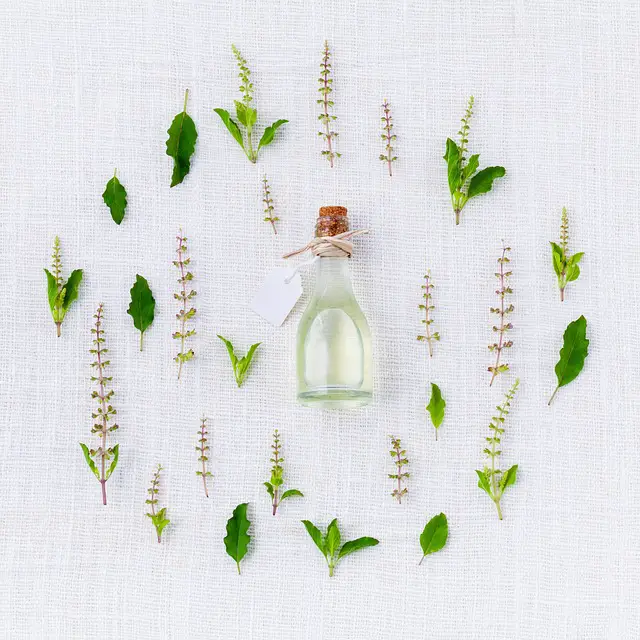
9. Neem
Neem contains a variety of properties that are effective in fighting Staph, E. coli and Salmonella. Neem supplements are the best option in order to control dosage. Neem leaves can be used to make a tea, but it won’t be as strong. Neem oil applied to an injury, eczema or acne promotes healing. High doses or prolonged use can cause toxicity which results in vomiting or and/or liver damage.
10. Olive Leaf Extract
The olive leaf extract is another one that can battle staph and other bacterial strains. It can help prevent and battle those infections. It’s not something you’re going to find in the wild, but you can buy supplements or the extract.
An olive leaf tea is a popular choice. It can be used topically to promote healing. People taking blood thinners will need to be careful with this on. If you take too much, you might experience some digestive issues.
11. Oregano
Oregano is flavorful herb that contains carvacrol and thymol, which fight and kill bacteria. It’s also an antifungal and antiviral, all qualities you want when you’re battling an infection that weakens your immune system. As with many plants with antibacterial qualities, those on blood thinner or someone who has diabetes should use with caution.
12. Plantain
For this case, we’re referring to the plant, often considered a weed. It’s one of those weeds you’ll find growing in disturbed ground and is often referred to as one of nature’s first aid products. Used as a poultice and applied to a wound it will promote wound healing.
It’s also an anti-inflammatory. It can also be used as an infusion to soak an injury or burn. It can be made into a tea for consumption but it’s not the typical usage. Because it’s generally used as a topical solution, there aren’t any real concerns. Although, some people might experience a rash or itching.
13. Raw Honey
Unpasteurized honey is easily one of the absolute best antimicrobial solutions you can get your hands on. It can be applied directly to a wound or taken raw. Mixing it into a tea with one of the other antimicrobial plants will boost the infection-fighting power.
There are no serious risks to using honey topically. Because unpasteurized honey does not go through the heating process, it is not safe to give to infants under the age of one.
14. Rosemary
Rosemary is a fragrant herb used in cooking, but it also contains more than forty antibacterial properties. It’s easy to grow rosemary at home for a quick tea. Rosemary essential oil added to a carrier oil can be used topically. The oil can also be used to create a soak for an injured hand or foot. The only serious concern with rosemary is using a large amount. For some people, it can trigger seizures.
15. Thyme
Another herb that is an antiseptic with antimicrobial properties. It is often used as an essential oil or tea. In some cases, it’s used to make a syrup. Thyme is less an antimicrobial than it is in preventing a bacteria infection from growing and spreading. It can be used raw to flavor soups, stews and so on.
A thyme tea can be consumed like a typical antibiotic is taken. Thyme essential oil can be added to a carrier oil for a topical remedy. Thyme should not be used if you have a history of epilepsy or a seizure disorder. Thyme contains thujone, which is a compound known to trigger seizures.
16. Turmeric
Turmeric is a multi-use spice. Most people think of turmeric and it’s curcumin properties which are anti-inflammatory. It is also an antibacterial, antifungal and an antiviral.
Supplements are the best way to get the right dosage that you can monitor. It can be taken as a tea as well. Some people like to add some of the other spices and herbs mentioned on the list.
Turmeric paste made from turmeric powder and water can be applied directly to a wound. You can mix the turmeric powder into honey for a super-punch to help heal a wound. Curcumin is known to be a blood thinner. Some people might notice some stomach issues if too much is taken.
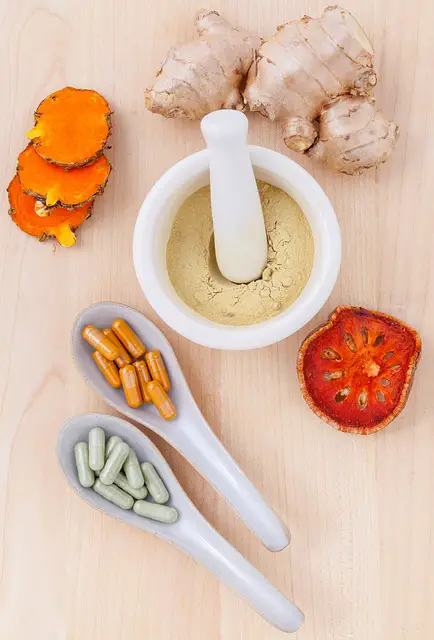
Like this post? Don't Forget to Pin It On Pinterest!


